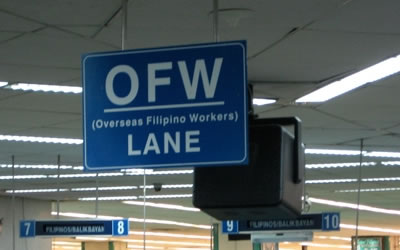Some people have a lot of misconceptions about real estate agents in the Philippines and the kind of work that they do. This one is the most common among them: “I don’t want to deal with a real estate agent. It is more expensive to buy from them than straight to the seller.”
Well, actually it is both true and false, depending on the case and the kind of property the agent is selling. Let me explain.
If you are buying a new property from a developer, chances are good that the price is already fixed by the company’s Marketing Department. The real estate agent or broker can’t do anything about the price. He can’t lower the selling price or jack it up higher. Can you just imagine if the developer allows their agents do their own pricing? It would be a disaster since the prices would naturally be different and would therefore confuse the buyer.
The story would be different if the property is owned by an individual investor or seller. Here is a typical scenario if an individual seller would enlist the help of an agent in selling his property:
- The seller comes up an amount he wants to pocket for the property. Naturally, this price already includes his profit. Sometimes he would price the property so much more to leave room when the buyer tries to negotiate the deal.
- The seller would then say to the agent, “That’s already the NET price. It’s up to you to put your mark-up price. I want to take nothing less than that amount and the buyer will be the one to shoulder all other expenses.”
Questions: If you were the agent, at which price would you sell the property if the owner wants to take a net amount of P2,000,000.00? Would you be so kind to sell it at P 2M also without taking a profit? Or, would you mark it up to compensate for your efforts and marketing expenses? How do you think would other agents come up with their price?
Well, I hope that leaves you with something to think about, whether you are selling or buying a property. Take note that most agents are uncomfortable with marking up the price. They are always afraid that the buyer will discover the seller’s asking price and will try to out-maneuver them from the deal.
Technically, a real estate broker is different from a real estate agent. But for simplicity, here we treat them as the same way and refer to them using the term real estate agent or simply agent.
Again remember that if the property is being sold by a developer, the price is dictated by the company. In other words, it is much comforting (no negotiations, no counter-offers, etc) on your part if you buy from a developer instead of buying from an individual seller.
That said, it is worth mentioning that there are numerous advantages when you work with a competent real estate agent, among them are the following:
- An agent saves you time and money looking for a property and the right financing.
- A good agent is also updated with the latest in the local property market.
- A buyer’s agent can help you negotiate the price.
- An experienced agent has a network of other professionals like lawyers, interior designers, home builder, etc.
- A good agent can assist you when something goes wrong with the deal, which is very likely to happen.
Who Should Get An Agent?
You already know the advantages of working with a competent real estate agent. It’s true that you can skip the services of an agent and buy direct from the seller, who is either a company of an individual. If you have all the time in the world, or you are confident enough of the whole process, you can do that. But I believe there are people who should be working with an agent to save them from trouble. If you belong to the following groups, I suggest that you really should hire the services of a good agent.
1. First-Time Home Buyers. If this is your first time to buy, don’t ever make a mistake of buying on your own. Buying a property is a complicated transaction which involves a lot of legalities you should be aware of. As much as possible get the help of an expert lawyer. And a competent real estate agent should be able to guide on the intricacies of buying and financing.
(See also: 5 Great Tips for the First-Time Home Buyers)
2. Relocating Buyers. It would be best if you are thoroughly familiar with the place where you wanted to buy. But for many relocating buyers, this is not always the case. This is where an experienced and long-time real estate professional can help.
3. Overseas Filipinos. The Philippines could seem a little strange if you have been away for a number of years. If you are based abroad, you will need at least two persons when buying a property here in your native country: a trust-worthy representative (usually a relative) and a good real estate agent. We are so low-tech here that a simple transaction is enough to make you lose your temper.
(Related article: Joining the Pag-IBIG Overseas Program.)
4. Busy People. Buying a property is very time consuming and very stressful, too. If you are so busy with work or business, you really should consider getting an agent.
5. Foreigners. We have some ways of doing things here that you may be doing differently at home in your country. Before you go nuts, it would be wise to have a good, competent buyer’s agent on your side to help you explain things.
(See also: Citizenship and Land Ownership in the Philippines)
Also don’t forget to do your part as a buyer of real estate. Use the Internet to conduct your own research of the property that you want to buy. This website alone offers a wealth of information that helps you become an educated buyer. Take time to read the other articles which interest you.
~~~
This article on working with real estate agents is written by Carlos Velasco.


 Answer to Q#1:
Answer to Q#1:  Instead of catching yourself unprepared for this thing at the POEA Office, it’s best if you are the one to enroll yourself to become a member of the Pag-IBIG Fund. To do this, please visit any of the following offices:
Instead of catching yourself unprepared for this thing at the POEA Office, it’s best if you are the one to enroll yourself to become a member of the Pag-IBIG Fund. To do this, please visit any of the following offices: It is a well known fact that land ownership in the Philippines is granted only to Filipino Citizens and Philippine Corporations with at least 60% interest by Filipinos.
It is a well known fact that land ownership in the Philippines is granted only to Filipino Citizens and Philippine Corporations with at least 60% interest by Filipinos.